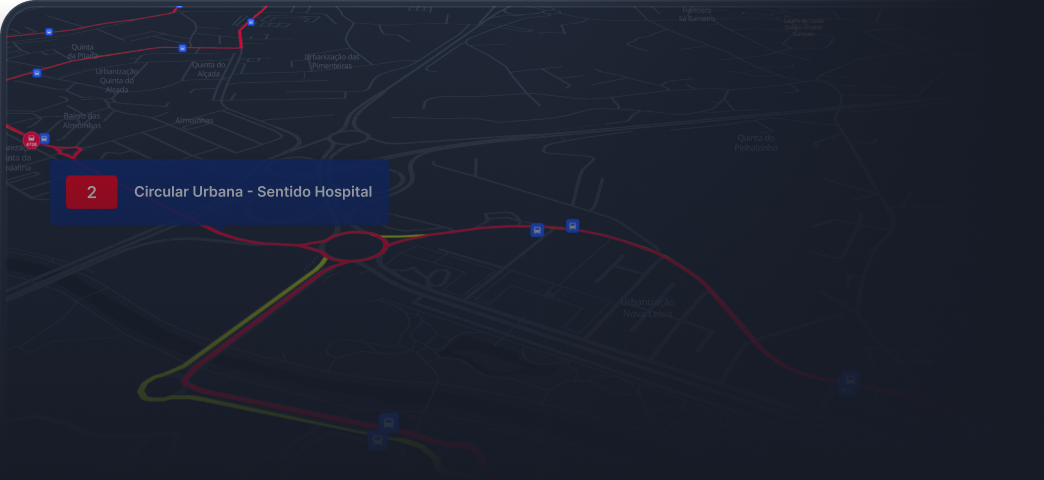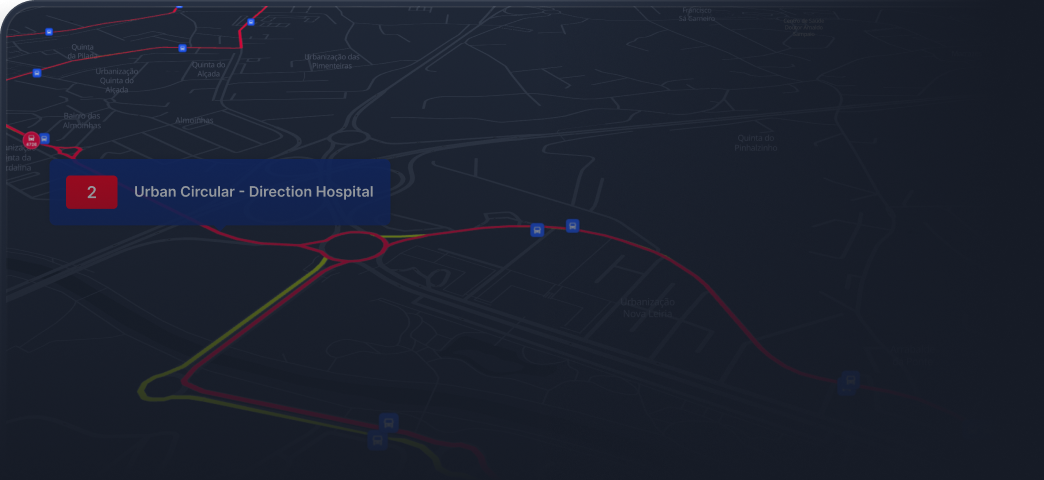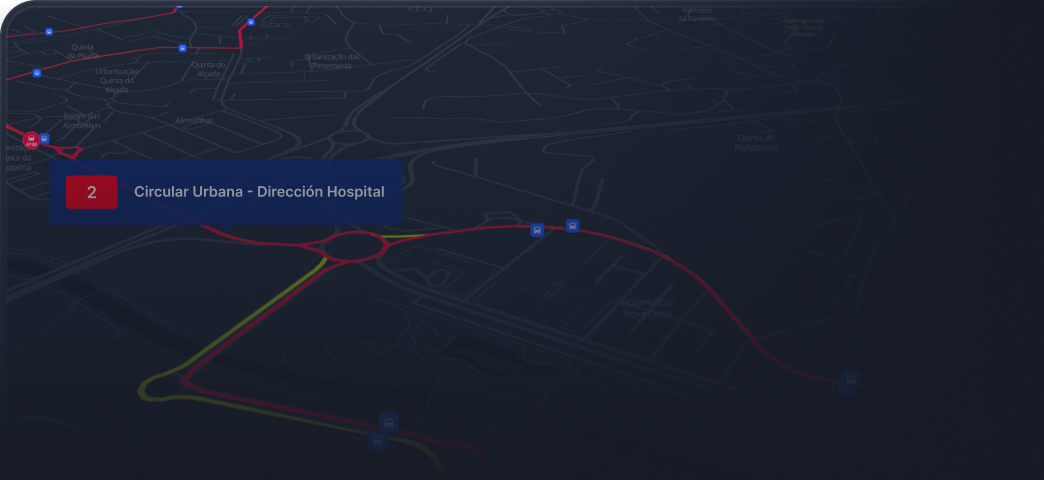Data at the service of territories and public administration: a conversation with Pedro Sarmento
Discover how Urban Management Platforms can promote more informed public decisions and territorial cohesion.

Pedro Sarmento is a Business Analyst at AMA (Agency for Administrative Modernisation), where he plays a key role in implementing the National Strategy for Smart Territories (ENTI). His experience blends technical and strategic expertise, gained through previous roles as a researcher at NOVA Cidade – Urban Analytics Lab and as a guest lecturer at NOVA IMS, specialising in geospatial intelligence and urban analytics.
In this conversation, held as part of the 3rd International Conference on Public Policy and Data Science, Pedro Sarmento shares his insights on the role of data in developing smarter, more cohesive cities and territories. The interview highlights the potential of Urban Management Platforms in data integration, contributing to the creation of more efficient public services centred on citizens’ needs.
“Urban management platforms provide a transversal view, integrating data from all these verticals and offering a holistic view of all this information, which can then be used to provide a comprehensive view of the entire territory (...)”

Pedro Sarmento
Business Analyst at AMA (Agency for Administrative Modernisation)
UW: Based on your experience at AMA, how can data be used to support decision-making in governmental contexts?
PS: Data can be widely used in governmental contexts. The main challenge – among several – is to understand exactly what the main problem is that we want to address, and which question we want to answer with this data. And then, how we access this data, meaning, which platforms do we use? In which formats do we consume this data, so that we can produce intelligence and knowledge about these data, so that we can respond to the needs of a governmental area, of the local public administration or the central public administration?
UW: What role do you attribute to Urban Management Platforms in promoting digital and territorial cohesion?
PS: Urban management platforms have a great advantage. In the past what has happened was that Municipalities managed their data in silos, in different information systems that respond to very specific municipal areas, namely environment, energy or water. Urban management platforms provide a transversal view, integrating data from all these verticals and offering a holistic view of all this information, which can then be used to provide a comprehensive view of the entire territory, develop use cases and solve very specific territorial issues. Ultimately, to create meaningful public services for the citizens.
UW: What is your vision for the future of Public Administration in Portugal regarding the use of data and technologies for the development of cities and territories?
PS: I think the main challenge here is that we have data and data-sharing services that can be shared across all public administration, both central and local, and also governmental areas. Because what has been observed so far is that municipalities need data from central public administration, and the opposite also happens. What AMA is pursuing with the National Strategy for Smart Territories and with various initiatives, namely the creation of the data system for smart territories, is creating an ecosystem for data sharing that allows access by municipalities to central administration data, and vice versa, so they can better respond to the needs of each of these entities.
Portal Público
Inclui funcionalidades que proporcionam uma experiência interativa e transparente, promovendo a participação cidadã, tais como:
▪︎ Visualização do estado da cidade em tempo real
▪︎ Inquéritos à população
▪︎ Interação com os cidadãos (Reporte de Ocorrências)
▪︎ Capacidade de integração com outros serviços do território
▪︎ Formulário de contacto
Inteligência Artificial
Potencia a acessibilidade e a análise avançada de dados, permitindo uma interação mais intuitiva, através de:
▪︎ Chatbot de apoio à compreensão dos dados
▪︎ Criação de novas visualizações com base em dados armazenados no Data Lake
▪︎ Capacidade de envio das visualizações por email
▪︎ Integração com LLM
▪︎ Integração nativa na plataforma
▪︎ Capacidade de instalação on-prem e em cloud
Portal de Dados Abertos
Promove a transparência e a inovação através das suas funcionalidades, incluindo:
▪︎ Disponibilização de dados abertos à população
▪︎ Criação de ecossistema de Open Data
▪︎ Plug-ins de rápida visualização
▪︎ Criação de ecossistema de inovação
▪︎ Federado com a Plataforma de Gestão Urbana
Aplicação do Cidadão
Oferece aos cidadãos um acesso prático e intuitivo a informações em tempo real sobre a cidade, permitindo uma participação ativa na gestão urbana, através de:
▪︎ Inquéritos à população
▪︎ Interação com os cidadãos
▪︎ Formulário de contacto
▪︎ Reporte de Ocorrências
▪︎ Federado com a Plataforma de Gestão Urbana
Citizen App
Offers citizens practical and intuitive access to real-time city information, enabling active participation in urban management through:
▪︎ Public surveys
▪︎ Citizen interaction
▪︎ Contact form
▪︎ Incident reporting
▪︎ Federated with the Urban Management Platform
Open Data Portal
Promotes transparency and innovation through functionalities including:
▪︎ Open data availability for the public
▪︎ Development of an Open Data ecosystem
▪︎ Quick visualisation plug-ins
▪︎ Creation of an innovation ecosystem
▪︎ Federated with the Urban Management Platform
Aplicación del Ciudadano
Ofrece a los ciudadanos un acceso práctico y intuitivo a información en tiempo real sobre la ciudad, lo que les permite participar activamente en la gestión urbana a través de:
▪︎ Encuestas a la población
▪︎ Interacción con los ciudadanos
▪︎ Formulario de contacto
▪︎ Notificación de Incidencias
▪︎ Federado con la Plataforma de Gestión Urbana
Artificial Intelligence
Enhances accessibility and advanced data analysis, enabling more intuitive interaction through:
▪︎ Chatbot support for data comprehension
▪︎ Creation of new visualisations based on stored Data Lake information
▪︎ Ability to send visualisations via email
▪︎ Integration with LLM
▪︎ Native platform integration
▪︎ On-premise and cloud deployment options
Public Portal
Includes features that provide an interactive and transparent experience, promoting citizen engagement, such as:
▪︎ Real-time city status visualisation
▪︎ Public surveys
▪︎ Citizen interaction (Incident Reporting)
▪︎ Integration with other territorial services
▪︎ Contact form
Portal de Datos Abiertos
Promueve la transparencia y la innovación mediante funciones entre las que se incluyen:
▪︎ Acceso a datos abiertos para la población
▪︎ Creación de un ecosistema de Open Data
▪︎ Plug-ins para visualización rápida
▪︎ Creación de un ecosistema de innovación
▪︎ Federado con la Plataforma de Gestión Urbana
Portal Público
Incluye funcionalidades que proporcionan una experiencia interactiva y transparente, promoviendo la participación ciudadana, tales como:
▪︎ Visualización en tiempo real del estado de la ciudad
▪︎ Encuestas a la población
▪︎ Interacción con los ciudadanos (Notificación de Incidencias)
▪︎ Capacidad de integración con otros servicios del territorio
▪︎ Formulario de contacto
Inteligencia Artificial
Potencia la accesibilidad y el análisis avanzado de datos, lo que permite una interacción más intuitiva mediante:
▪︎ Chatbot de apoyo para la comprensión de los datos
▪︎ Creación de nuevas visualizaciones basadas en datos almacenados en Data Lake
▪︎ Envío de visualizaciones por correo electrónico
▪︎ Integración con LLM
▪︎ Integración nativa en la plataforma
▪︎ Capacidad de instalación on-premise y en la cloud
Receba a brochura da Plataforma de Gestão Urbana
Fique a conhecer as funcionalidades e componentes que ajudam a gerir os territórios de forma mais inteligente. Preencha o formulário para pedir acesso à brochura.









